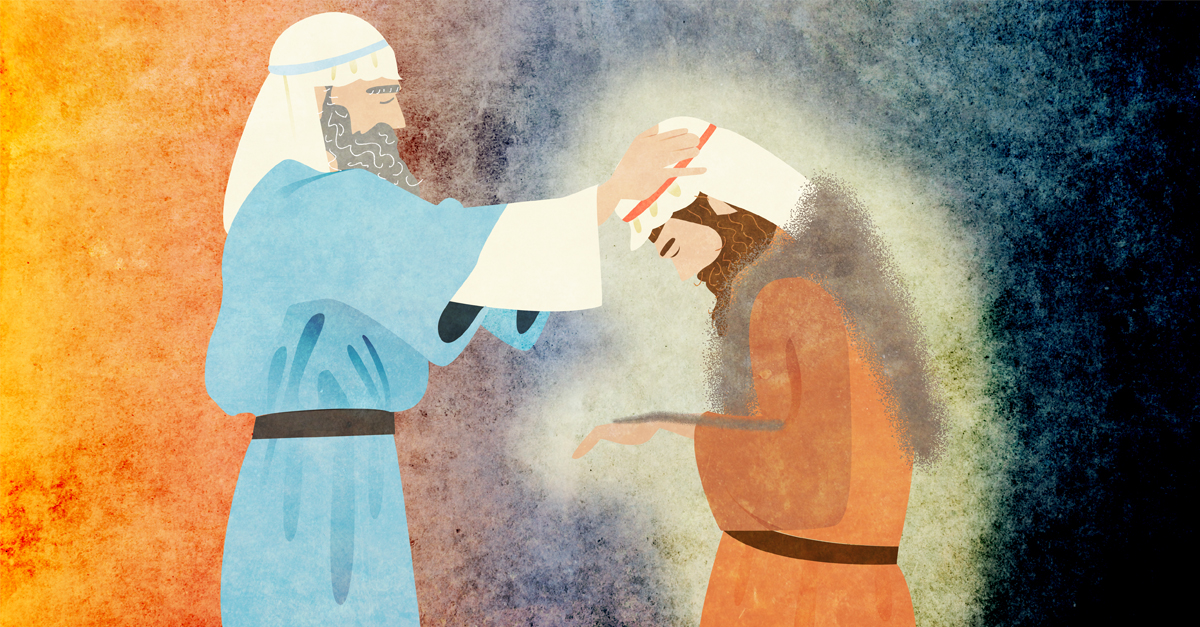Bonjour / Hello [nickname_else_first_name],
Table of contents
1) Perashat Hashavoua - Rabbi Eli Mansour
2) Halakhat Hashavoua (Halakhot related to day to day life)
from the ARCHIVES by Emil Khadoury z'L - Sanctity of Beit Hakeneset
3) Holy Jokes!
1)PERASHAT HASHAVOUA
This Week's Parasha Insight with Rabbi Eli Mansour
Parashat Toldot: Hard Work and Effort
The Torah in Parashat Toldot tells the story of the blessings which Yishak Abinu wished to bestow upon his older son, Esav, but which were taken by the younger son, Yaakob. Yishak informed Esav of his desire to bless him, and instructed him to go out to the field, hunt an animal, and prepare the meat for him, so that in the merit of this Misva he would be worthy of his blessing.
After Esav left, Ribka, who heard Yishak’s commands to Esav, plotted to have Yaakob receive the Berachot, instead. As Yishak was blind, Ribka needed only to dress Yaakob in Esav’s special garments so he would feel like his brother. The Torah says that Ribka dressed Yaakob in "Bigdeh Esav…Ha’hamudot" – Esav’s "precious" garments. The Sages explain that these garments had been passed down since the time of Adam, and had the special power to attract animals. In fact, this is how Noah brought all the animals onto the ark – by attracting them through these garments. Esav received this clothing and would wear it when he went hunting. The animals would be drawn to him, and this is how Esav could easily catch them. Esav used this power for the sake of the Misva of Kibbud Ab – honoring his father, as he would quickly catch animals and prepare meat for Yishak. According to the Midrash, these were the garments in which Ribka dressed Yaakob when he came before Yishak disguised as Esav to receive the blessings.
Rav Zalman Sorotzkin (1881-1966), in his Oznayim La’Torah commentary, notes the obvious question that arises from the Midrash’s comments. If, indeed, the "Bigdeh Esav Ha’hamudot" were the garments which Esav wore while hunting to prepare meat for his father, so why wasn’t Esav wearing them at this time? Yitshak had just commanded him to prepare meat; seemingly, this was precisely the time when Esav would wear his special garments to help him out in the hunt. Why were they at home?
Rav Sorotzkin offers several answers, one of which is that Yitshak specifically asked Esav to hunt the animals naturally, without using his special garments, so that he would need to work hard and thereby earn reward. As the Mishna in Abot (5:23) famously teaches, "Le’fum Sa’ara Agra" – the harder one needs to work in fulfilling a Misva, the greater his reward is. Yishak wanted Esav to be worthy of the great blessings which he now wished to grant him, and so he told Esav to go out and hunt an animal without the miraculous power of the special garments, which made hunting quick and easy.
When it comes to performing Misvot, we should not be looking for shortcuts, or for the easy way out. The quality of our Misvot depends, to a large extent, on the hard work and effort that we invest in them. And so we must not expect Misva observance to be easy, and we certainly must not despair when challenges and obstacles get in the way. We must remember that it is specifically through the exertion of effort that our Misvot become precious and valuable, and bring us immense rewards.
2) HALAKHAT HASHAVOUA
Halachot this week are from the ARCHIVES by Emil Khadoury z'L
Archive - WEEK OF NOVEMBER 26th 2006
Sanctity of Beit Hakeneset (Synagogue)
In Sefer Leviticus,Perek 26,pasuk 2,the Torah tells us Umikdashi Tira-ou (Fear my temple).our Hakhamim calls Beit Hakeneset (Synagogue),Mikdash Meat,which means a miniature Beit Hamikdash(Temple).Therefore we have an obligation to show fear and respect to the Synagogues.it is prohibited to be light-mindedness in them.talk idely,playing,eating , drinking or sleeping.They should not be used by someone just to shelter himself from rain,cold or heat.
On the other hand reception halls,houses,used only on special occasion as a prayer places,have no Kedusha (sanctity)in them,since they are not assigned for regular religious services.The Divine Presence rests in places that are open daily for prayer with a Miniyan(10 adults men).
Community money collected from donations ,and set aside to build a Synagogue,Beit Midrash(study hall),or to buy,Teba, Sefer Torah,this fund is prohibited from being spend for any other purposes since there is Kedusha( sanctity )in that money.Also we can not sell an item that have higher Kedusha value to buy items with less kedusha,like selling Sefer Torah to buy prayer books.We always improve in value of Kedusha items.
If someone need to enter a Synagogue to call another person or to bring an item,has an obligation to stay a little ,read a psalm,and then do his task.Just sitting in the Synagogue is also considered a Mitzvah,as the Verse says,Ashre Yoshebe Beitekha (Praiseworthy are those who dwell in your house)
Va-alekhem Tabo Birkat Hatob
---------------
Emil(Benyamin) Khadoury
3) HOLY JoKeS!!
Selection of funny snippets, loosely related to this weeks parashah or current events, to brighten your day
If I ever have twin daughters, I'd name the first one Kate..
....and the second one Duplikate.
Why did the Canadian Siamese twins go to the UK on vacation?
So the other one could drive.
A woman has twins and gives them up for adoption
A woman has twins and gives them up for adoption.
One of them goes to a family in Egypt and is named Amal. The other goes to a family in Spain. They name him Juan.
Years later, Juan sends a picture of himself to his birth mother. Upon receiving the picture, she tells her husband that she wishes she also had a picture of Amal.
He responds, “They’re twins! If you’ve seen Juan, you’ve seen Amal.”














